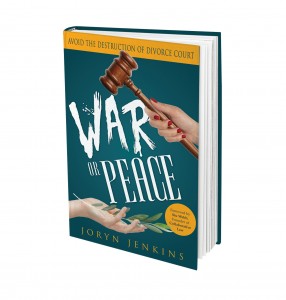
Did my headline catch your eye?
“The Worst Way to End a Marriage”
I lecture often about the horrors of traditional courtroom divorce and compare its negative effects to the positive aspects of cooperative and collaborative divorce. I always tell the story of how my parents were divorced when I was seven years old. “My mother loaded us kids into the van and moved us 3000 miles away. . . and I never saw my father again.”
Every time I tell that story, there’s dead silence immediately after. The shock waves reverberate against the walls. People don’t know what to say. You can see them immediately trying to gauge my age. (I’m 58 years old now.) Of course, they feel sorry for me. You can tell what they’re thinking. “It’s such a horrible thing to happen to a small child.” “Oh, and there were several kids, not just one.” Some folks even think about my dad. “Why would she do that?” “What could he possibly have done to deserve that?”
For some reason, people assume that my story is an outlier. I have no idea why. My story is not so unusual. I was at breakfast the other day with six gentlemen from my referral networking group, BNI, from all walks of life. For some reason, I happened to tell the story; after all, it defines who I am and why I do what I do for a living. But two others of us told variations on the same theme. Consider that; three out of seven, nearly half of us, told the same story!
Andrew was born in England. His father kidnapped him when he was seven and relocated him to another country. His mother couldn’t find him for several months. When she did, she recovered him, and he never saw his father again.
Gary grew up in the Midwest. He was abducted by his father when he was six years old and he never saw his mother again.
Strangely, the snatching element is also not uncommon. I was kidnapped by my father when I was six years old, when my parents were first separated. But he only took me away to another city for three days, and returned me at the end of the weekend. I remember vividly how distraught my mother was.
Last October, I went to lunch in Washington, D.C. with a group of… well, let’s just say that I was the youngest person there. We were all lawyers, although of different varieties, with our spouses, and we had all been very active in the American Inns of Court movement 15-20 years earlier. There were 22 of us seated around the table. We were circling around, bringing everyone up to speed on what the last 15 years had looked like for each of us. (It had been that long since we had all been at one event together.)
One of the women, who was probably 68- or 70-years-old, told the story of her parents’ divorce. The divorce itself was not a recent event, but what was news was that she had just reconnected with her 91-year-old dad. She had not seen him for over 50 years. But, when her mother died, she seized the opportunity to reach out.
He was not at all what she had expected. And he was thrilled to hear from her. What was so telling was the elation she shared with all of us, the delight of having her father in her life again. Something she had never dreamed possible while her mother was alive.

I always tell my story in terms of… I never saw my father again. But the other side of that coin, of course, is that he never saw any of his four daughters again. I will never know why, whether he chose not to seek us out, or my mother made it clear that he would never be welcome, and he just accepted her decision.
She used to tell us that he never paid any child support, despite that he was a doctor. But then again, when I was 19 years old, he called me and we talked briefly. I was away at college but I, of course, having only one parent upon whom I was completely dependent, was a Mama’s Girl. So I reported back to her and asked her why she thought he had called. It was not clear to me from our conversation. She suggested that he was calling to find out if I was emancipated so that he didn’t have to pay child support anymore.
So which was it? I’ll never know. He died last year and I don’t speak to my mother anymore.
There’s no question that children are pawns in many divorces. There’s no question that children are injured when they are used that way. Utilizing the collaborative process to restructure your family is a better alternative for, at the very least, your children than is the destruction that is the traditional courtroom divorce process.
Look for my book, …and I Never Saw My Father Again, coming out in May 2015. Beginning with the story of my own parents’ divorce, I illustrate in it with true stories how personal choices impact how people end their marriages: with dignity and self-respect, or with hatred and virtual bloodshed. Like War or Peace, my first book about the long lasting effects of the traditional courtroom divorce, …and I Never Saw My Father Again is a must-read for anyone contemplating divorce. Everyone has heard the horror stories; few know how to avoid them. In both books, I demonstrate how to avoid the destructive effects caused by the divorce court process, describing both the divorce wars fought in the courtroom, as well as the peaceful divorces negotiated at the conference table, as I watched them unfold, and revealing the alternatives, so that the lay reader can make his own informed choices.














